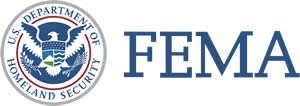RSS feed source: Global Disaster Alert and Coordination Systems (GDACS).
WASHINGTON — FEMA announced that federal disaster assistance is available to Members of the Leech Lake Band of Ojibwe to supplement recovery efforts in the areas affected by severe storms and straight-line winds on June 21, 2025.
The President’s action makes federal funding available to affected individuals and families of the Leech Lake Band of Ojibwe. Assistance can include grants for temporary housing and home repairs as well as funds to replace personal property.
The Leech Lake Band of Ojibwe is also eligible to receive federal funding on a cost-sharing basis for emergency work and the repair or replacement of facilities damaged by the severe storm and straight-line winds.
Frederic Kaehler has been named the Federal Coordinating Officer for federal recovery operations in the affected areas. Additional designations may be made at a later date if requested by the Tribal Nation and warranted by the results of further damage assessments.
Tribal members who sustained losses on or near the designated area should first file a claim with their insurance provider.
FEMA assistance is meant to return a home to a safe, sanitary and functional residence and cannot pay for all disaster losses. To meet the needs of disaster survivors more fully, FEMA partners with other governmental and non-governmental agencies, including the U.S. Small Business Administration (SBA). The SBA may offer low-interest disaster loans to homeowners, renters, business owners and private
Click this link to continue reading the article on the source website.


